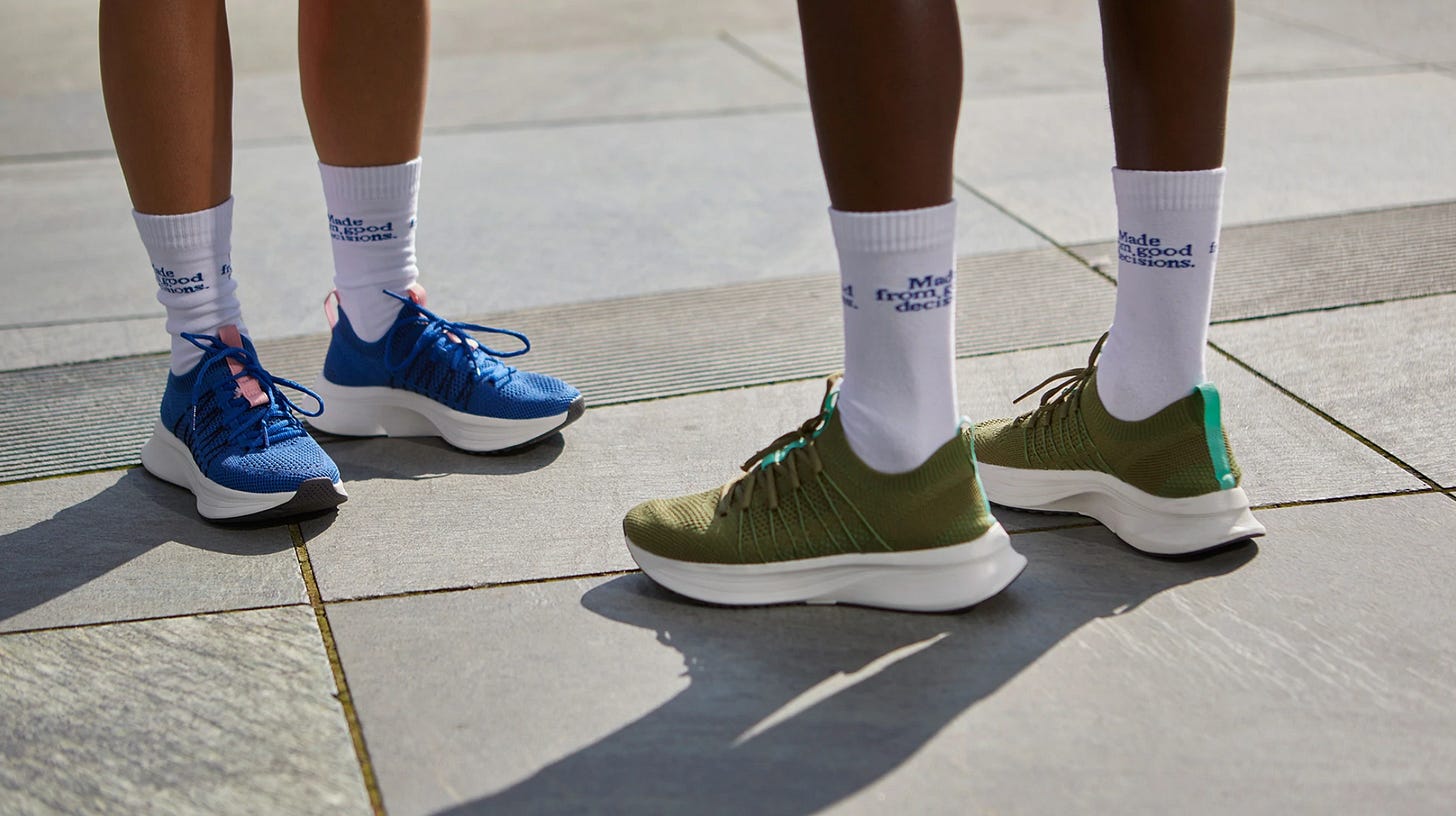You won't forget my name, n.4
The fourth edition of the sporadic selection of brilliant naming cases.
Following up on the last post in the series, we bring here a curation of new and established brands that have caught our attention in recent times. Their names deviate from traditional naming and open the way to new possibilities when it comes to brand names.
Understanding why a name is strong is key to creating ours — we hope this list will serve as a tool for you too.
1. The Attico
Okay, let's start by saying that this brand name lives in an absolutely neat universe of verbal communication. From their about page:
"Attico, Italian for penthouse, is a word that conjures visions of lavish abandonment from the top floor. The Attico, with a definite article, is the brainchild of Gilda Ambrosio and Giorgia Tordini. The Milan based designers launched the project in 2016 out of a shared love for glamor and sparkle. Willing to share their vision, they prompt join us upstairs."
The word Attic is used very intelligently, but the difference is certainly the support of the word, The. At all times the brand refers to itself as The Attico, including in the logotype, where the article plays a graphic role in the construction of the characteristic shape, but also elevates Attico to an exceptional position in terms of meaning. Still, it is worth noting that the construction of sounds is easily pronounced by different languages and accents, with an interesting consistency.
The brand is a compliment to those who seek the essence of style — which is one of the ways to describe the Parisian way of consuming, dressing, and behaving. Thinking about the meaning of essence, a keyword used generously in the brand’s copywriting, there is talk of outlining the intrinsic nature of something, that determines its character.
Another important point to consider is that it is common for Paris luxury brands to use the street as a reference. Think Chanel and Rue de Cambon, or Dior and Avenue Montaigne. It's an extra layer of meaning. How genius it is to demonstrate this idea in the name; the geographic location, the place, is the most charming quality of the business. Rue de Verneuil is the address of the Parisian studio from where Vincent Ribat launched his bags & accessories line in 2014.
Think of a business that offers running but without the noise of extreme performance and competition. Zen Running Club offers products and invites the audience to think of running as a more approachable and popular exercise. Therefore, it's the perfect example of an experiential name, that maps to an aspect of a human experience while engaging with the brand.
It's fair to say that the brand thinks about people who, among other things, also enjoy running, and don't want to perform like athletes. It is possible to infer that the word club plays a heavier role in conveying this idea, tieing the final name meaning in a balanced way. The brand uses three pillars, whose meanings I extract from its social networks:
Zen: An approach to an activity, skill, or subject that emphasizes simplicity and intuition rather than conventional thinking or fixation on goals.
Running: As a sport or for pleasure, running significantly improves your health, and lowers the risk of cardiovascular disease, whilst enhancing mood and energy levels.
Club: Our club allows everyone an equal chance to participate and have the opportunity to progress how they choose.
And what more prominent place to say what you came for than the name itself? That's it.
Signing off,
Isis May








